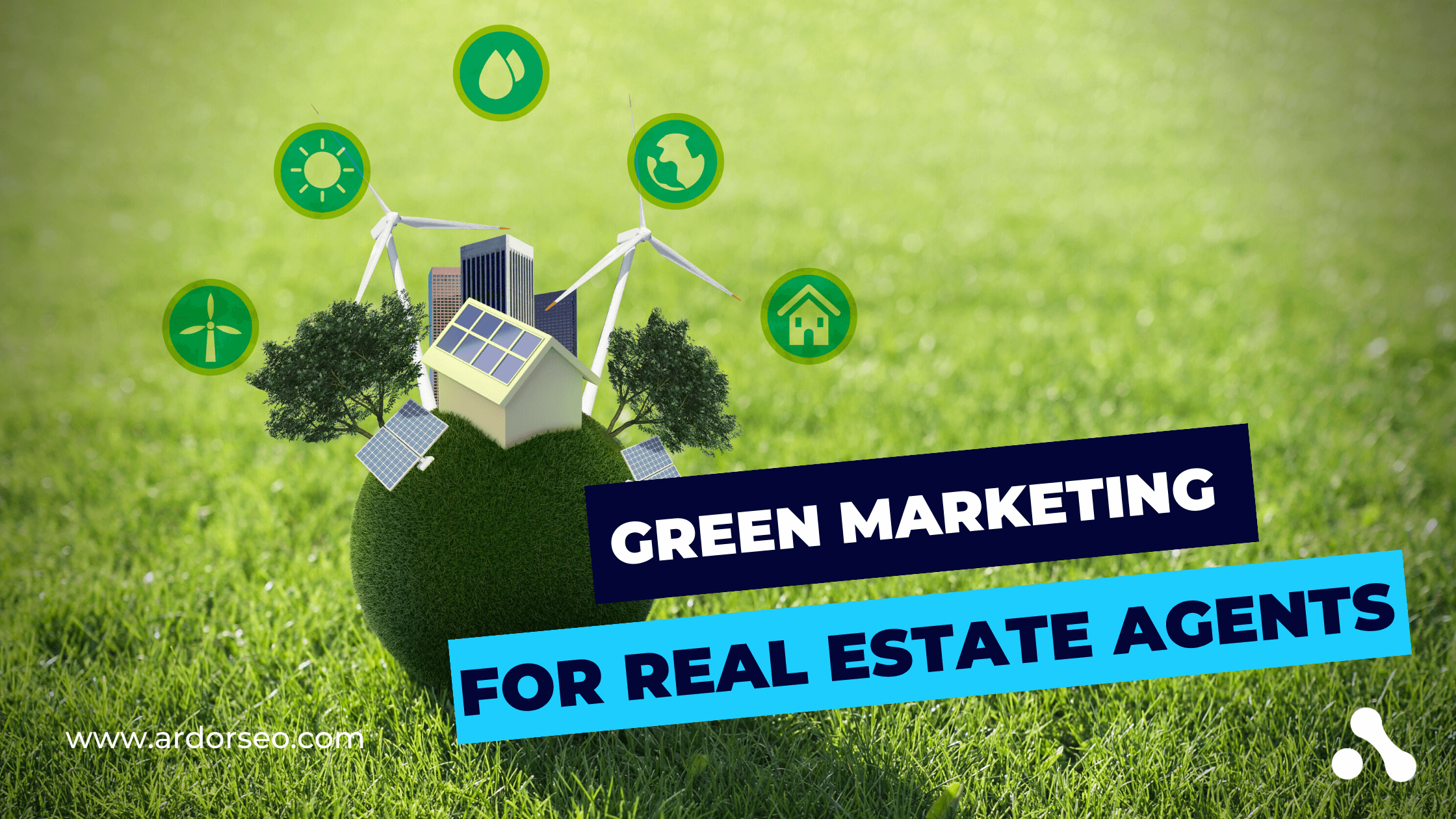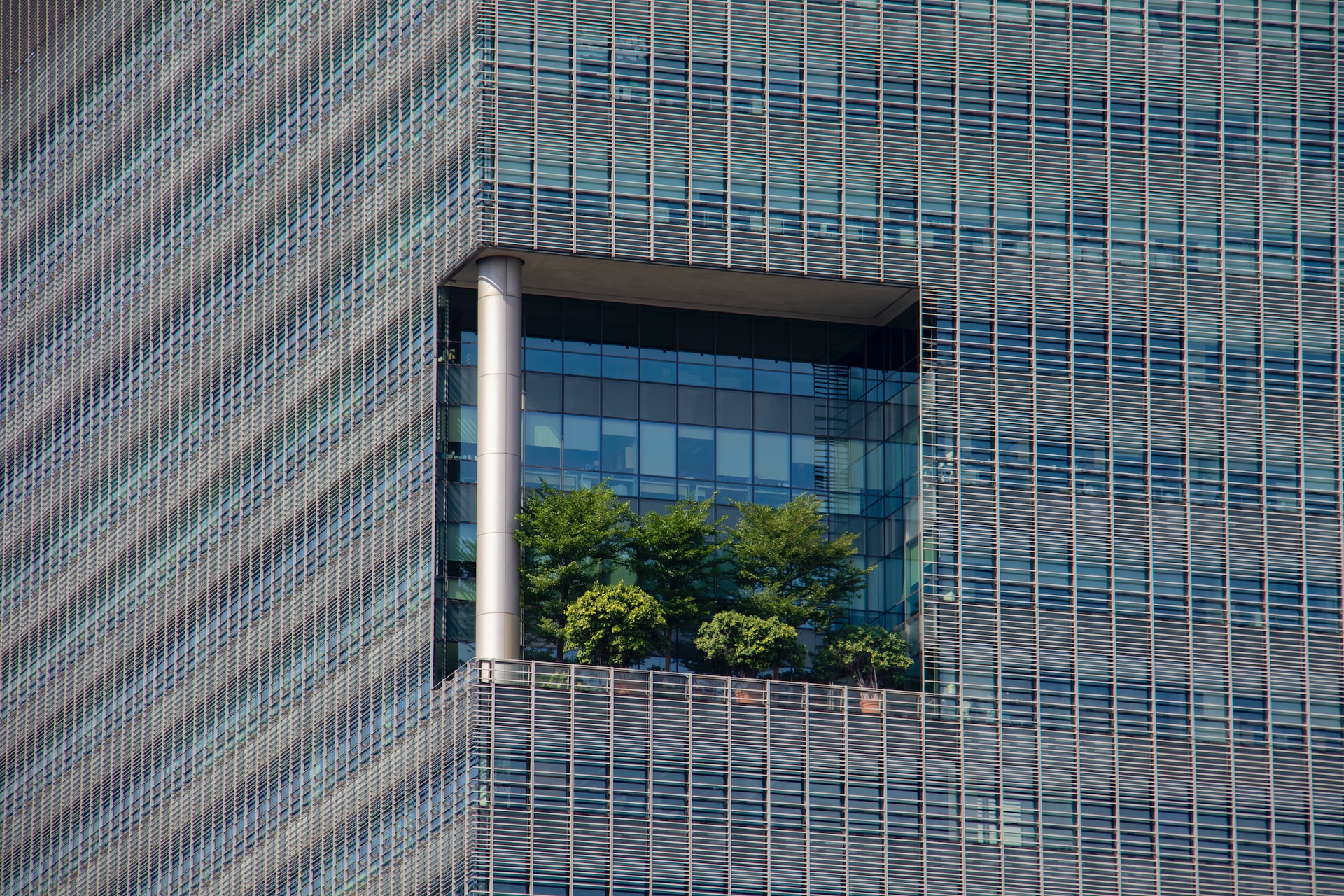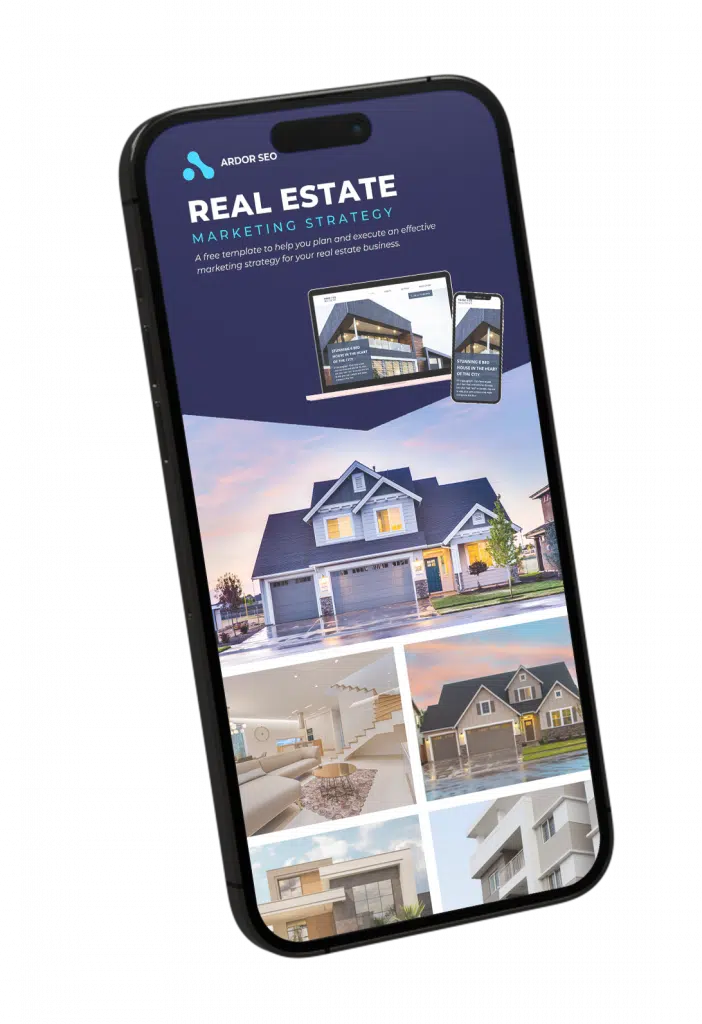
The concept of green marketing has emerged as a powerful tool for real estate agents looking to connect with a new breed of homebuyers—those who prioritize environmental sustainability and eco-conscious living.
What is green marketing? Often referred to as eco-marketing or sustainable marketing, green marketing is a strategic approach that emphasizes the promotion of products or services based on their environmentally friendly attributes. In the context of real estate, it involves highlighting properties that incorporate sustainable features and align with eco-friendly values.
Eco-consciousness is on the rise, and it's not limited to green marketing products. Today's homebuyers are increasingly concerned about the environmental impact of their homes. They seek properties that boast green features, from energy-efficient appliances to eco-friendly building materials. Understanding this trend is essential for real estate professionals aiming to remain competitive in the market.
This article aims to equip real estate agents with valuable insights and practical strategies to tap into the growing market of eco-conscious homebuyers. We'll delve into the motivations behind eco-consciousness, explore the benefits of green real estate, and provide actionable guidance on crafting a compelling green brand image and effective marketing strategies.
Understanding Eco-Conscious Homebuyers

Eco-conscious homebuyers represent a growing and influential segment of the real estate market. To effectively reach and engage with them, real estate agents need to gain a deep understanding of their profile, motivations, values, and preferences.
These homebuyers come from diverse backgrounds, but they share certain common characteristics. They are often well-educated and tech-savvy and belong to various age groups, from millennials to baby boomers. However, what truly defines them is their commitment to sustainable living. They prioritize environmental responsibility, seeking companies that use green marketing and homes that align with their values.
These buyers often look for specific features in properties, such as energy-efficient appliances, renewable energy sources like solar panels, sustainable building materials, and efficient insulation. Proximity to green spaces, public transportation, and walkability are also key factors for them.
Motivations and Values
The motivations and values of eco-conscious homebuyers are rooted in a desire to minimize their environmental footprint and make a positive impact. They are driven by a range of values, including:
- Environmental Stewardship: Eco-conscious homebuyers want to contribute to a healthier planet. They believe in reducing energy consumption, conserving water, and minimizing waste.
- Health and Well-being: Many are concerned about the health benefits of living in eco-friendly homes. They value improved indoor air quality, which comes from using non-toxic building materials and efficient ventilation systems.
- Cost Savings: Sustainable features often lead to lower utility bills, making eco-conscious homes financially attractive in the long run.
- Resale Value: These buyers recognize that eco-friendly homes tend to appreciate in value over time, making them a smart investment.
- Community and Social Responsibility: Eco-conscious individuals often seek out neighborhoods and communities that share their values and offer opportunities for eco-friendly living.
As you begin to understand those looking for examples of green advertising, it's essential to remember the importance of effective digital marketing. To reach eco-conscious homebuyers and promote eco-friendly properties, partner with Ardor SEO to make a new clear message for green marketing in your company. Our expertise in search engine optimization (SEO) and digital marketing can help you showcase green properties to a wider audience, drive traffic to your listings, and ultimately boost your real estate business. Don't miss the opportunity to tap into this growing market segment – let Ardor SEO enhance your online presence and connect you with eco-conscious buyers. Contact us today!
Benefits of Green Real Estate

Green real estate offers a wide array of benefits that appeal to homebuyers, the environment, and even regulatory bodies. As eco-consciousness grows, so does the demand for green properties. This can lead to faster sales and potentially higher resale values. Understanding these advantages and using sustainable advertising examples can empower real estate agents to effectively market eco-conscious properties to their clients.
Advantages for Homebuyers
Eco-conscious homebuyers enjoy numerous benefits when choosing green real estate. Green homes often feature energy-efficient appliances, improved insulation, and renewable energy sources. This leads to reduced utility bills, saving homeowners money in the long run. Sustainable building materials and enhanced indoor air quality contribute to healthier living environments. Eco-conscious homes often provide greater comfort and well-being for occupants.
Environmental Benefits
Eco-friendly homes typically consume fewer resources and produce fewer greenhouse gas emissions, helping combat climate change. Sustainable building practices minimize resource consumption, such as water and energy, preserving natural resources for future generations. Eco-conscious landscaping and green building designs can promote biodiversity and support local ecosystems.
Regulatory Advantages
Green real estate often aligns with regulatory goals and standards. Green properties are more likely to meet or exceed environmental regulations, reducing the risk of costly fines or penalties. In some areas, green building projects may receive expedited permitting or other regulatory advantages. Compliance with green building standards allows for the promotion of eco-friendly features, attracting eco-conscious buyers.
How to Craft a Green Brand Image

When it comes to green real estate, crafting a compelling green brand image is not only about aesthetics but also about communicating your commitment to sustainability and attracting eco-conscious buyers. Let's explore the essential steps to create a compelling green brand identity.
Define Your Green Identity
The first step in crafting a green brand image is defining what "green" means for your real estate business. It's about establishing your unique green identity, which may include specific sustainability goals, principles, and values. Are you focused on energy-efficient homes, sustainable building materials, or eco-friendly communities?
Create a Sustainable Marketing Message
Once you've defined your green identity, create a sustainable marketing message that resonates with eco-conscious homebuyers. This message should articulate your commitment to environmental responsibility and the benefits buyers can expect when choosing your services. Highlight how your properties contribute to a greener, more sustainable lifestyle. A clear and compelling message will differentiate you from competitors and attract like-minded clients.
Revamp Logo and Branding Elements
Your logo and branding elements help convey your green brand image. Incorporate design elements that symbolize sustainability, such as green color schemes, leaf motifs, or eco-friendly symbols. Ensure that your branding aligns with your green identity, creating a visual identity that reinforces your commitment to eco-conscious real estate.
Use Storytelling and Content Marketing
Effective storytelling is a potent tool for building your green brand image. Share stories and content that showcase your involvement in green real estate. Highlight successful eco-friendly projects, green features of properties, and the positive impact on homeowners and the environment. Use blogs, videos, and infographics to educate and engage your audience about the benefits of green living. By consistently sharing compelling stories, you can establish yourself as an authority in the green real estate niche.
As an additional note, partnering with organizations that promote sustainability and environmental stewardship can strengthen your green brand image. Consider collaborating with local green initiatives or becoming a member of green real estate associations.
Effective Green Marketing Strategies

In the realm of real estate, an effective and sustainable marketing example is essential to reach your target audience and promote eco-conscious properties successfully. Here are key strategies to leverage in your green marketing campaigns.
1. Online Presence and Website Optimization
Your online presence is your storefront. Invest in a user-friendly, visually appealing website that highlights your green real estate offerings. Optimize your site for search engines (SEO) to ensure potential buyers can find you when searching for eco-friendly properties in your area. Ensure that property listings include detailed information about green features.
2. Social Media Engagement
Engage with your audience on social media platforms such as Facebook, Twitter, Instagram, and LinkedIn. Share content that emphasizes your commitment to sustainability, including property photos and articles on green living. Foster a sense of community by responding to comments and messages promptly. Use social media to showcase your expertise and build trust among eco-conscious homebuyers.
3. Email Marketing Campaigns
Email marketing remains a powerful tool in real estate. Build an email list of interested buyers and create targeted campaigns highlighting green properties, sustainable living tips, and industry news. Personalize your messages to resonate with each recipient's interests and preferences. Email marketing keeps you top-of-mind with potential clients and can lead to direct inquiries about your green listings.
4. Content Marketing
Educational content is key to attracting eco-conscious buyers. Create a blog with informative articles on green building practices, energy efficiency, sustainable materials, and eco-friendly communities. Supplement written content with videos and infographics to cater to different learning preferences. Share this content on your website, social media, and through email campaigns to position yourself as an authority in green real estate.
5. Partnering with Green Organizations

Collaborate with local and national green organizations to expand your network and credibility. Join green associations and attend industry events to connect with professionals who share your passion for sustainability. Partnering with green organizations that have sustainable practices can lead to referrals and valuable insights into emerging green trends.
6. Networking and Community Involvement
Build relationships within your local community by attending eco-focused events, green fairs, and neighborhood meetings. Becoming an active participant in environmental initiatives and organizations can boost your reputation and help you connect with eco-conscious homeowners who value community involvement.
7. Leveraging Eco-Friendly Real Estate Listings
When listing eco-friendly properties, ensure that your marketing materials highlight green features, such as energy-efficient appliances, solar panels, sustainable landscaping, and green certifications like LEED or ENERGY STAR. Use high-quality photos and detailed descriptions to showcase the property's eco-friendly attributes.
8. Testimonials and Case Studies
Encourage satisfied clients from green real estate transactions to provide testimonials. Showcase these testimonials on your website and marketing materials. Additionally, create case studies detailing the successful purchase or sale of green properties, emphasizing the benefits to both the buyer and the environment.
Legal and Ethical Considerations

Maintaining legal and ethical standards is not only essential for the reputation and success of your business but also for ensuring transparency and trust with eco-conscious homebuyers. Here are some key legal and ethical considerations to keep in mind.
Greenwashing Risks
Greenwashing refers to the deceptive marketing practice of exaggerating or falsely claiming a product or service's environmental benefits. In the context of green real estate, misrepresenting a property as "green" or "eco-friendly" when it does not meet the necessary sustainability criteria can have legal and ethical consequences. Homebuyers trust real estate agents to provide accurate information about a property's green features.
Compliance with Green Building Standards
Adhering to established green building standards and certifications is not only a best practice but also a legal and ethical obligation. Common standards include LEED (Leadership in Energy and Environmental Design) and ENERGY STAR. Ensure that any properties marketed as green meet the specific criteria for these standards. Non-compliance can result in legal consequences and damage your reputation.
Honesty in Marketing Claims
Maintain honesty in your marketing claims. When marketing green properties, provide clear and accurate information about their eco-friendly features. If a property is not certified but has some green elements, clearly state this in your marketing materials. Misleading statements or omissions can lead to legal liabilities and erode trust with potential buyers.
Conclusion
Having a green marketing strategy and eco-friendly practices allows you to meet the evolving needs and values of today's eco-conscious homebuyers. As we recap the key points discussed in this article, it becomes clear that eco-conscious homebuyers represent a growing market segment, and their values and preferences must be understood and catered to. Green real estate offers numerous benefits, not only for homebuyers but also for the environment and regulatory compliance.
To further enhance your green marketing efforts and amplify your online presence, partner with Ardor SEO, a leading digital marketing agency specializing in search engine optimization. Our expertise can help you reach a broader audience of eco-conscious homebuyers, drive more traffic to your green listings, and position you as a trusted authority in the green real estate niche. Elevate your real estate business with the power of SEO and digital marketing from Ardor SEO. Contact us today!

